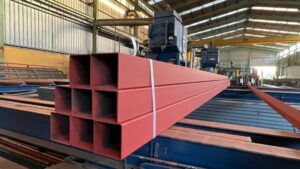There is increasing demand for low carbon emission steel, SSAB business director Josu Pina Bilbao said May 24 during the EUROMETAL conference in Barcelona.
SSAB is aiming to commercialize fossil-free steel on an industrial scale to the market in 2026 and plans to largely eliminate carbon dioxide emissions from its own operations by 2030-45.
“We are following the timeline of our commercialization of the fossil free steel in 2026 and we are assessing a price mechanism,” Pina Bilbao told S&P Global Commodity Insights on the sideline of the conference.
“At the moment, we understand there is a premium applied for low carbon steel in the market by our competitors, but we have to see by 2026 what the market will be,” he said.
More companies wanted to be part of the journey to produce low carbon products, Pina Bilbao added.
Platts assessed domestic hot-rolled coil prices in Northern Europe at Eur1,060/mt ex-works Ruhr May 23, down Eur5 day on day.
SSAB also announced May 24 that Volvo Trucks would be introducing SSAB fossil-free steel in its trucks.
A small-scale introduction of the steel in Volvo’s heavy electric trucks will start already in the third quarter of 2022, with the first steel will be used in the truck’s frame rails and then will be introduced in other parts as fossil-free steel availability increases, SSAB said.
SSAB and Volvo Group have been collaborating on fossil-free steel since 2021.
In August 2021, SSAB produced and delivered the world’s first steel made of sponge iron reduced with hydrogen to Volvo and the automaker’s first machine — a load carrier made of fossil-free steel — was showcased in October 2021.
In 2016, SSAB, iron ore producer LKAB and energy company Vattenfall joined forces to create HYBRIT technology, replacing coking coal, traditionally needed for ore-based steelmaking, with fossil-free electricity and hydrogen.
— Annalisa Villa






